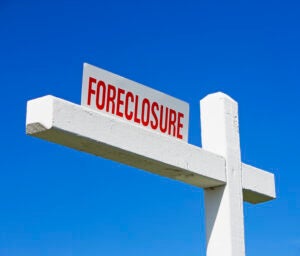Housing bills 2024: ‘Trigger leads,’ hedge fund homeowners, capital gains on home sales

Members of Congress are weighing proposed new laws on a slate of high-stakes housing issues.
One proposal, to curb credit bureaus’ sale of mortgage borrower information, has support from mortgage lenders and from lawmakers on both sides of the aisle.
Another measure, which would block corporate investors from snapping up single-family homes, is getting love only from Democrats.
Congress is also considering a bill that would encourage homeowners to sell by lowering the capital gains tax on primary residences.
Here’s a closer look at each.
Taking aim at ‘trigger leads’
What’s a trigger lead? When you apply for a mortgage or a loan preapproval, the loan officer runs your credit history through the national credit bureaus. The bureaus often sell that information to competing lenders, who then rush to make offers to you before you commit to the original lender.
Trigger leads are generated quickly, and many in the industry say the flood of pitches leaves consumers feeling confused and overwhelmed. The Mortgage Bankers Association has characterized the offers as “unwanted harassment.”
“Applicants are being bombarded with hundreds of calls or emails or texts that confuse them,” says Bill Killmer, the group’s senior vice president for Legislative and Political Affairs.
While trigger leads have been industry practice for decades, the barrage is a recent phenomenon. Democrats and Republicans in the House and Senate have introduced proposals to curtail the practice.
“Getting spammed with additional offers, after a family has already shopped for a mortgage and chosen a lender, makes this already stressful process even more stressful,” U.S. Sen. Jack Reed, a Democrat from Rhode Island, said when introducing his bill. “Consumers who are subjected to a deluge of solicitations as the result of a trigger lead are justified in feeling that their privacy has been invaded.”
Reed cited an example of a borrower being contacted with more than 100 pitches within two days of applying for a loan.
Other proposed housing bills
- Downpayment Toward Equity Act: $25,000 grant for first-generation, first-time homebuyers; also known as President Biden’s $25,000 homebuyer grant
- DASH Act: $15,000 tax credit for first-time buyers, among other provisions
- First Time Homebuyer Act: $15,000 tax credit for first-time buyers
- HELPER Act: No-down payment FHA loans for first responders, law enforcement officers and teachers
- Workforce Housing Tax Credit Act: More affordable housing for workers who earn too much to qualify for low-income housing but not enough for housing near their jobs
The proposals would give borrowers more leeway to opt out of trigger leads, and it would narrow the types of lenders who could contact borrowers, says Killmer.
When it comes to mortgage shopping, more choices are usually better. Comparing three to five offers can save you thousands of dollars over the life of your mortgage.
Critics of trigger leads, however, say the offers are rarely better than the original deal, and come at such speed and volume that consumers can’t make sense of them.
A ban on hedge fund homeowners
In the aftermath of the Great Recession, the face of property investment shifted dramatically. Institutional homebuyers saw opportunity in a glut of foreclosed homes for sale, and companies such as Invitation Homes and American Homes 4 Rent purchased thousands of single-family homes. The landlords then rented the properties to tenants who had tired of apartment life but couldn’t buy homes themselves.
Fast forward a decade, and there’s a nationwide housing shortage. Pointing to institutional investors as a cause, Congressional Democrats have introduced bills in both houses of Congress that would prevent hedge funds from buying and owning single-family homes.
One proposal would require hedge funds — defined as corporations, partnerships or real estate investment trusts (REITs) that manage funds pooled from investors — to sell any single-family homes they own over a 10-year period, and ultimately ban those companies from owning any houses.
“Congress must take action to crack down on corporate greed and get hedge funds out of the single-family home market,” Rep. Adam Smith of Washington said in a December news release introducing the bill.
In the meantime, hedge fund homeowners would pay punitive taxes, with the proceeds earmarked for down payment assistance.
In a related proposal, Reps. Jeff Jackson and Alma Adams of North Carolina, both Democrats, proposed a bill requiring corporate owners of more than 75 single-family homes to pay a yearly fee of $10,000 per home into a housing trust fund. The proceeds would be used as down payment assistance for homebuyers.
The proposals received pushback from conservatives, who see them as government overreach. Even the sponsors acknowledge that the proposals are unlikely to pass, given Republican control of the House of Representatives.
It’s true that large investors have become bigger players in the single-family rental market over the past decade. Invitation Homes owned more than 76,000 single-family homes as of its earnings report for the third quarter of 2023.
The Urban Institute reports that large landlords — those with 100 or more units apiece — owned 574,000 single-family homes nationwide as of mid-2022. That represented less than 4 percent of the 15 million single-family rental houses in the U.S.
It’s unclear how much a ban on corporate owners would ease the housing squeeze. That’s because institutional investors are most active in Sun Belt markets of Atlanta, Charlotte and Phoenix, rather than more affordable metro areas such as Buffalo, Chicago, Cleveland, Detroit and Pittsburgh. Nor are the single-family landlords major forces in the most unaffordable markets, a list that includes Los Angeles, San Francisco and Seattle.
Raising the capital gains tax threshold
The good news for homeowners: You might not owe capital gains taxes when you sell. The bad news: The threshold for this popular tax break hasn’t kept pace with the sharp increase in home values in recent years.
With that reality in mind, the proposed More Homes on the Market Act would increase the capital gains exclusion from $250,000 to $500,000 for single taxpayers. For married couples filing a joint return, the exclusion would go from $500,000 to $1 million. The exemption is currently available only for primary residences that owners have lived in for at least two of the past five years.
The bill, co-authored by Rep. Mike Kelly, R-Pennsylvania, and Rep. Jimmy Panetta, D-California, also would index the exclusion so it keeps pace with inflation.
“Half a million is certainly a large figure, but it’s not what it once was,” says Killmer. “In some markets, that won’t buy you much of a house.”
Despite bipartisan support and the endorsement by the likes of the Mortgage Bankers Association and the National Association of Realtors, it’s unlikely the higher capital gains tax threshold will be enacted in 2024, says Killmer.
Why we ask for feedback Your feedback helps us improve our content and services. It takes less than a minute to complete.
Your responses are anonymous and will only be used for improving our website.
You may also like

Home equity rates hold steady at two-year lows





